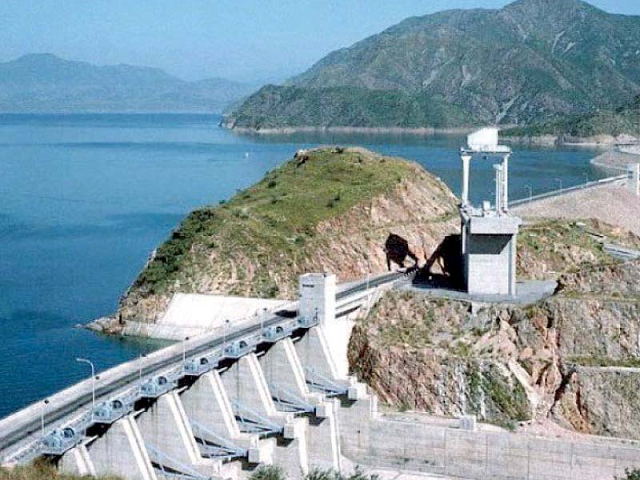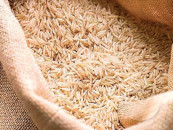WAPDA chief calls for giving Kalabagh dam’s control to Sindh
Agrees Sindh’s reservations about its water share in the dam are justified

About 50% of water was being wasted in the agriculture sector and a telemetry system installed in Punjab for calculating and restricting water consumption had been destroyed. PHOTO: FILE
Briefing the Senate Standing Committee on Water Resources, chaired by Senator Shamim Afridi, Wapda chief Muzzamil Hussain said Pakistan had a water storage capacity for only 30 days of consumption whereas India had reserves for 170 days.
SC to take up contentious Kalabagh dam case on June 9
“Kalabagh dam should be built with consensus of all political parties,” he emphasised. “Reservations of Sindh are justified and operations of Kalabagh dam should be handed over to the province if the dam is built.”
He pointed out that Sindh had reservations that Punjab would consume its water share from the dam.
Senator Gianchand pointed out that there was no political consensus on building the Kalabagh dam, therefore, no discussion should be held on the subject.
Senator Quratulain Marri said the inter-provincial Council of Common Interests (CCI) failed to reach consensus on building the dam, therefore, the project was abandoned.
The Wapda chairman underscored the need for arriving at a political consensus for building mega dams and setting the price of water.
He estimated that 25 million acre feet of water was being wasted every year because of lack of storages. Tarbela Dam has so far lost its 30% water storage capacity.
He opposed the planting of sugarcane crop that required excessive water and suggested that only those crops should be cultivated that needed low water supply.
Industry insists Kalabagh Dam will benefit all provinces
He revealed that 50% of water was being wasted in the agriculture sector, adding a telemetry system installed in Punjab for calculating and restricting water consumption had been destroyed.
The situation was the same in Sindh as well, members of the committee said, where water was being wasted while planting different crops.
Hussain said water storage capacity of Tarbela and Mangla dams had gone down with the passage of time.
Citing India’s example, he said the neighbour had built 943 dams to store water for 170 days whereas Pakistan had 155 small and big dams with storage capacity for only 30 days. Calling water theft a big challenge, he underlined the need for building mega dams to enhance the country’s water storage capacity.
According to the Wapda chairman, 260,000 tube wells are running in the country that have reduced ground water levels.
Pointing out the difficulties faced in initiating construction work on the Diamer-Bhasha Dam, Hussain said allocated land for the dam was on the boundaries of both Khyber-Pakhtunkhwa and Gilgit-Baltistan.
Whenever Wapda officials tried to start construction, people from both sides resorted to gunfire and so far 12 Wapda employees had lost their lives, he said.
So far, the government has given Rs80 billion in compensation to the people of these regions but, according to Hussain, both regional governments were not cooperating.
He regretted that a workable plan for shifting population from the dam site was not made in 2006 and a plan designed by Wapda in that regard was not accepted.
He pointed out that roads were being built across the country, but no work had been started on a 150km road that would connect Diamer-Bhasha Dam.
Top court seeks reply from govt regarding Kalabagh Dam
The Wapda chairman suggested that the Indus Waters Treaty had some weak points, so efforts were required to improve the agreement. He asked the government to adopt an aggressive policy and make the treaty part of Pakistan’s foreign policy.
Saying that the situation of Indus Water Commission was very poor, he urged the government to take initiatives for bringing improvement in it.
Illegal appointments in Nespak
The Wapda chairman revealed that 921 appointments were made in the National Engineering Services of Pakistan (Nespak) on political grounds in violation of the merit policy that destroyed the engineering firm. He called for stopping such hiring to ensure efficiency and smooth working.
He was of the view that Pakistan had a dearth of consultants and they were compelled to hire services of foreign firms.
Published in The Express Tribune, June 7th, 2018.
Like Business on Facebook, follow @TribuneBiz on Twitter to stay informed and join in the conversation.



















COMMENTS
Comments are moderated and generally will be posted if they are on-topic and not abusive.
For more information, please see our Comments FAQ